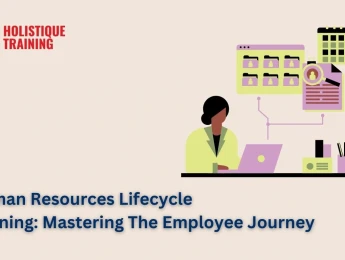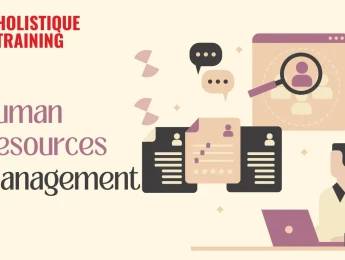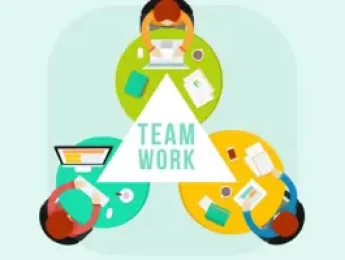Human resources administration practices play a pivotal role in the success and sustainability of any organisation. Effective HR administration ensures the alignment of human capital with the company's strategic goals and objectives.
It encompasses various crucial functions such as recruitment, talent management, employee relations, and compliance with labour laws. A well-structured HR administration system fosters a positive work environment, enhances employee morale, and promotes productivity. It also plays a crucial role in attracting and retaining top talent, as skilled and motivated employees are essential assets for organisational
growth.
HR administration practices also mitigate risks associated with legal and compliance issues, thus safeguarding the company's reputation. By fostering a culture of diversity, equity, and inclusion, HR practices contribute to a harmonious workplace that values each employee's unique contributions.
The effective implementation of human resources administration practices is indispensable for achieving organisational excellence and ensuring long-term success.
Upon completion of this course, participants will be able to:
- Acquire a comprehensive grasp of HR functions to build a robust foundation.
- Apply HR principles and concepts effectively in a practical work setting.
- Enhance decision-making skills within the realm of HR for more informed choices.
- Acknowledge the pivotal role of HR Administrators within the organisational HR framework.
- Compile and cultivate competencies essential for the success of HR Administrators.
- Differentiate between diverse organisational structures and construct them using Microsoft Visio.
- Enumerate the fundamental functions of HR systems and ascertain business needs for the organisation's HR system.
- Craft HR reports utilising various graph types and templates.
- Identify the requisite legal documents necessary for employee data collection and maintenance.
- Formulate the organisation's employee handbook for comprehensive guidance.
This course is designed for anyone responsible for HR processes and procedures within any industry. It would be most beneficial for:
- HR Administrators
- HR Assistants
- Business Owners
- Directors
- Administrators
- Recruiters
- Secretaries
This course uses a variety of adult learning styles to aid full understanding and comprehension. Participants will review various commonly used HR systems and understand the necessity and benefits of each.
They will conduct group tasks to underline the biggest risks and problem areas within their own organisations and suggest new systems and processes to mitigate these problems. They will then watch a trainer-led presentation to understand how to communicate and project manage large HR administration shifts.
Day 5 of each course is reserved for a Q&A session, which may occur off-site. For 10-day courses, this also applies to day 10
Section 1 : The Major Role of HR Administration in an Organisation
- Understanding core HR functions.
- Applying HR principles in a practical context.
- Decision-making within HR.
- The vital role of HR administrators.
- Competencies for successful HR administration.
- Organisational structures using Microsoft Visio.
- Core functions of HR systems.
- Business requirements for HR systems.
- HR reports with various graphs and templates.
- Legal documents for employee data.
- Developing an employee handbook.
Section 2 : Various Organisational Structures & Their HR Processes
- Exploring diverse organisational structures.
- Understanding HR processes within different structures.
- Analysing hierarchical organisational models.
- Delving into flat organisational structures.
- Examining matrix and team-based structures.
- Identifying HR implications in network structures.
- Comprehending the role of HR in hybrid organisational setups.
- Evaluating the impact of organisational culture on HR processes.
- Comparing traditional and modern organisational structures.
- Applying HR strategies tailored to specific organisational designs.
- Synthesising HR practices for flexibility in evolving structures.
Section 3 : Working with HR Systems
- Navigating HR system interfaces.
- Data entry and management in HR systems.
- Understanding HR software functionalities.
- Troubleshooting common HR system issues.
- Ensuring data accuracy and integrity.
- Integrating HR systems with other organisational tools.
- Utilising reporting features in HR systems.
- Exploring automation and workflow capabilities.
- Complying with data protection regulations in HR systems.
- Staying updated on HR system updates and upgrades.
- Fostering collaboration between HR and IT departments for system optimisation.
- HRMS Microsoft Dynamics.
- Oracle HCM Cloud.
- SAP SuccessFactors.
Section 4 : How to Measure & Report on HR Data
- Introduction to key HR metrics.
- Methods for data collection in HR.
- Data analysis techniques for HR professionals.
- Interpreting HR data for decision-making.
- Creating effective HR reports.
- Using technology and tools for HR data measurement.
- Legal and ethical considerations in HR data reporting.
- Case studies on successful HR data measurement and reporting.
- Trends and innovations in HR analytics.
- Communicating HR data to stakeholders.
Section 5 : Secure Record & Document Keeping
- Importance of secure record and document keeping.
- Legal and regulatory requirements for record keeping.
- Best practices in document classification and organisation.
- Implementing secure storage systems for records.
- Access control and permissions in document management.
- Encryption and data protection in record keeping.
- Disaster recovery and backup strategies for records.
- Auditing and monitoring for secure record keeping.
- Employee training on secure document handling.
- Emerging technologies in secure record and document storage.
Upon successful completion of this training course, delegates will be awarded a Holistique Training Certificate of Completion. For those who attend and complete the online training course, a Holistique Training e-Certificate will be provided.
Holistique Training Certificates are accredited by the British Assessment Council (BAC) and The CPD Certification Service (CPD), and are certified under ISO 9001, ISO 21001, and ISO 29993 standards.
CPD credits for this course are granted by our Certificates and will be reflected on the Holistique Training Certificate of Completion. In accordance with the standards of The CPD Certification Service, one CPD credit is awarded per hour of course attendance. A maximum of 50 CPD credits can be claimed for any single course we currently offer.
- Course Code PH1-125
- Course Format Classroom, Online,
- Duration 5 days














